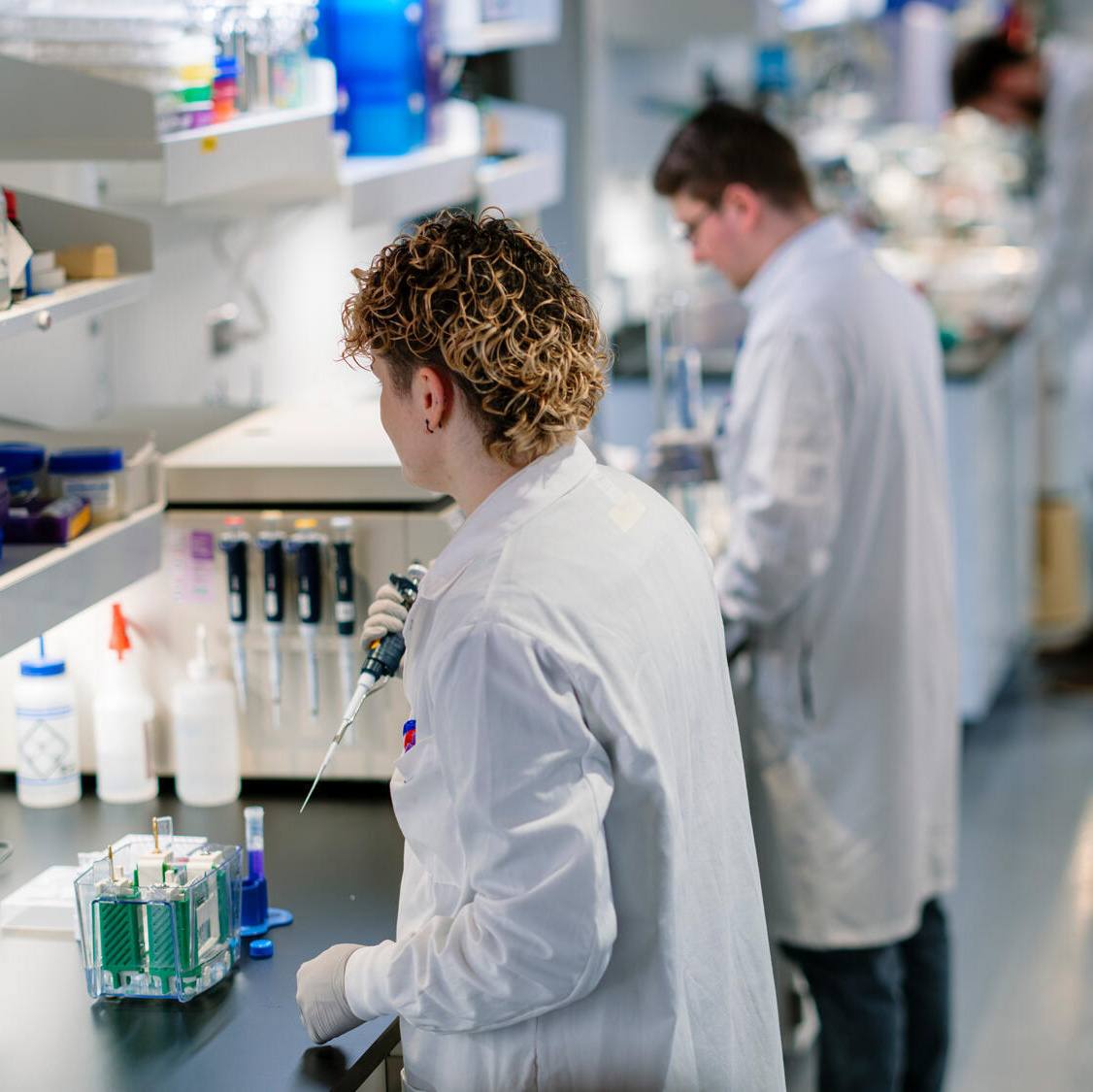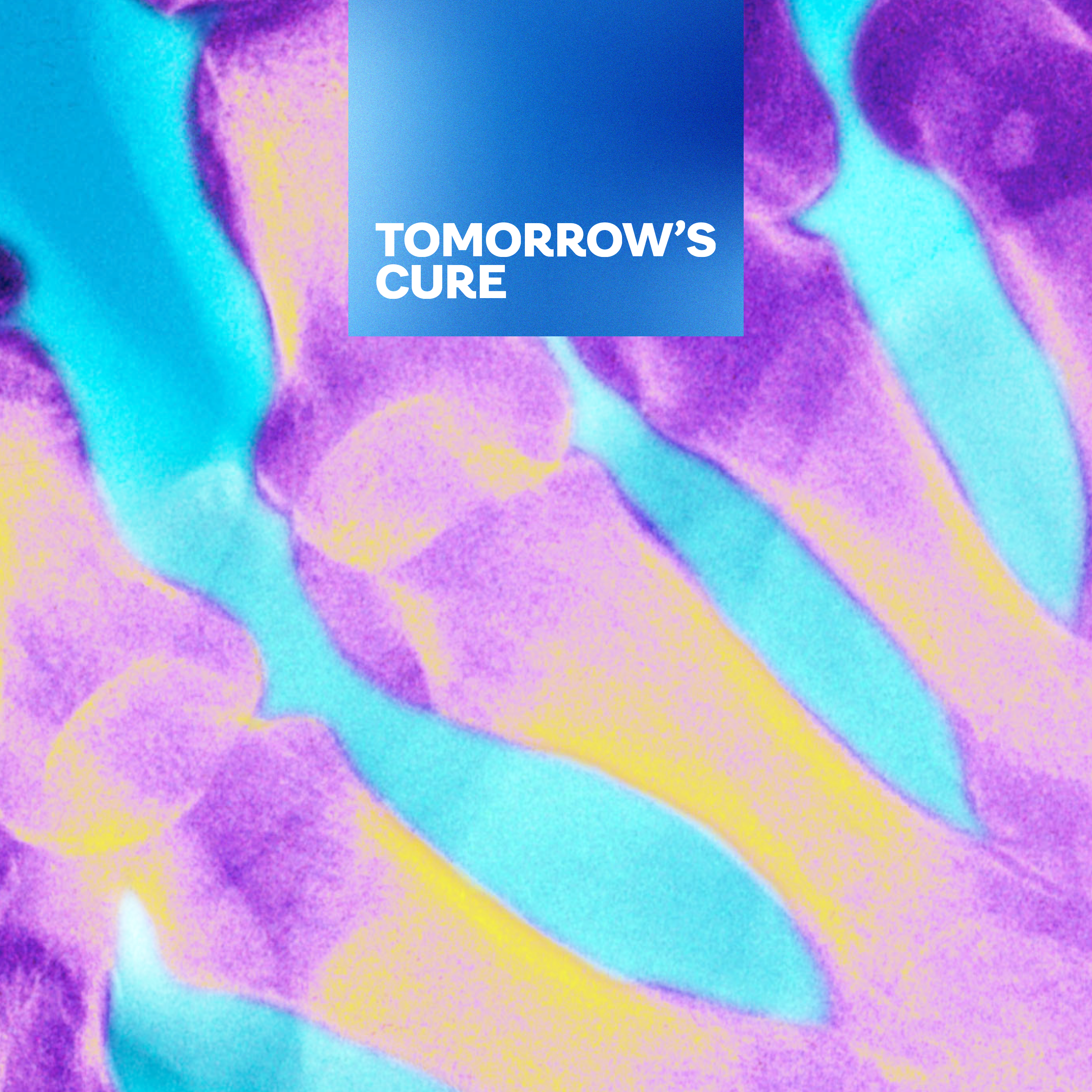-
Research
Science Saturday: Rare, undiagnosed diseases are relatively common

As many as 25 million Americans – about 1 in 13 people - suffer from a rare, undiagnosed condition.* April 29 has been designated Undiagnosed Disease Day to raise awareness that collectively, rare diseases are relatively common. People with a rare disease often spend years visiting different medical providers and clinics seeking answers to unexplained conditions. Mayo Clinic Center for Individualized Medicine brings together a team of experts, the most sophisticated genomic testing and worldwide research to solve complex, undiagnosed cases.
Genetic sleuthing of puzzling cases
The Human Genome Project —the first mapping of a person’s genetic blueprint — has unlocked mysteries of rare diseases that for ages bewildered medical science. Completed just 16 years ago, the Human Genome Project has ushered in a new era of individualized medicine that has significantly advanced the ability to diagnose rare, genetic diseases.
The Center for Individualized Medicine’s experts, who make up the Genomic Odyssey Board, consult clinical findings, DNA testing and research to solve rare disorders. Patients come from around the world seeking a diagnosis. DNA testing offers a genetic trail of clues that sometimes leads researchers and clinicians to a scientific pot of gold: a diagnosis that no one else has been able to make. Even if there’s not a treatment, having a diagnosis can be life changing. Patients can stop spending time and money visiting countless health care providers in search of answers.
Mayo Clinic has been able to diagnose approximately 30 percent of patients with unexplained genetic disorders. The Genomic Odyssey Board would like to close the gap on the other 70 percent of cases that go unsolved, and advancements in tools offer hope for a better success rate.
Dr. Heidi Rehm: Data sharing brings new answers for everyone.
The promise of DNA sequencing also brings the challenge of interpreting big data. Consider this: sequencing one patient’s genome generates data so massive that if stacked end-to-end, it would reach from earth to the moon. Finding disease-related genetic variants within those results can be like looking for a needle in a haystack.
Heidi Rehm, Ph.D., a geneticist and genomic medicine researcher at the Broad Institute Chief Genomics Officer at Massachusetts’s General Hospital and Professor of Pathology and Harvard Medical School, has called for broader knowledge sharing of disease-related variants in order to zero in on disease-causing genes.
Dr. Rehm, who presented at the 2018 Individualizing Medicine Conference, says databases where researchers and clinicians share information about genetic variants, interpretations and evidence linking genes to specific health care disorders, have greatly advanced understanding of rare, genetic diseases.

“It’s a combination of crowd sourcing the challenge, sharing the evidence, identifying when we might view evidence differently, and validating the findings,” says Dr. Rehm. “If we’re really going to integrate genetics into the practice of medicine, we need to ensure that the information we are returning to patients is valuable and accurate. We need resource sharing across the community to do that.”
Dr. Rehm identified three key genomic data sharing sites that are improving the chances of finding a diagnosis:
• ClinVar – a variant database where laboratories and research groups share interpretations of rare disease-related variants.
• ClinGen – a large NIH program that develops standards and assembles experts to compile and review evidence and for assessing the role of genes and variants in disease.
• Matchmaker Exchange – a platform for building evidence for genes implicated, but not proven to be linked to disease.
Information from data sharing sites helped establish best practices in genetic and genomic testing, leading to more reliable and consistent results.
“This means patients are more likely to have their disease-causing variants identified as causal rather than classified as a variant of uncertain significance. As a result, they are more likely to get an accurate and consistent diagnosis that stands up to testing from multiple labs,” says Dr. Rehm.
Dr. Eric Klee: New tools and new technology on the horizon
Mayo Clinic is developing computer software that would analyze genetic data from unsolved cases in which the trail has gone cold. The software program would send alerts when new research reveals understanding of a gene that could crack a case.
Eric Klee, Ph.D., associate director of the Mayo Clinic Center for Individualized Medicine Bioinformatics program, envisions a tool that would constantly update former variants of unknown significance, going back to the very first unsolved cases analyzed five or six years ago.

“We are in a unique timeframe in the history of mankind in that we are learning exponentially more all the time about genetic disease. What we know today is so drastically different from what we knew even a year ago,” says Dr. Klee. “Tools that allow us to automatically go back and analyze cases in terms of new knowledge are going to be very important.”
Dr. Klee, who also presented at the 2018 Individualizing Medicine Conference, envisions new tools that would broaden data sharing to include both genotype (genetics) and phenotype (visible characteristics such height, eye color, overall health status and disease history) in a centralized, worldwide database.
“That unleashes the power of experts from around the world to solve rare cases rather than just from one institution,” says Dr. Klee. “The ability to learn and diagnose would be significantly improved.”
On the technology side, Dr. Klee predicts whole genome sequencing — which covers all a person’s DNA — will replace the current practice of sequencing only the known disease causing genes. That will give investigators additional information on how changes within the genetic blueprint might be causing disease. He believes RNA sequencing, which reveals defects within the genes, will also be increasingly used. That may improve the solve rate for patients who are seeking a diagnosis after suffering for years from an unknown disease.
*National Institutes of Health
Join the conversation
For more information on the Mayo Clinic Center for Individualized Medicine, visit our blog, Facebook, LinkedIn or Twitter at @MayoClinicCIM.
Learn from and network with researchers and innovators in oncology at Individualizing Medicine 2019 Conference: Precision Cancer Care through Immunotherapy and Genomics
Westin Kierland Resort & Spa
Scottsdale, Arizona
Sept. 20-21, 2019
Key themes include:
• CAR-T therapy
• Clonality
• Pharmacogenomics
• Lineage Plasticity
• National Cancer Institute







